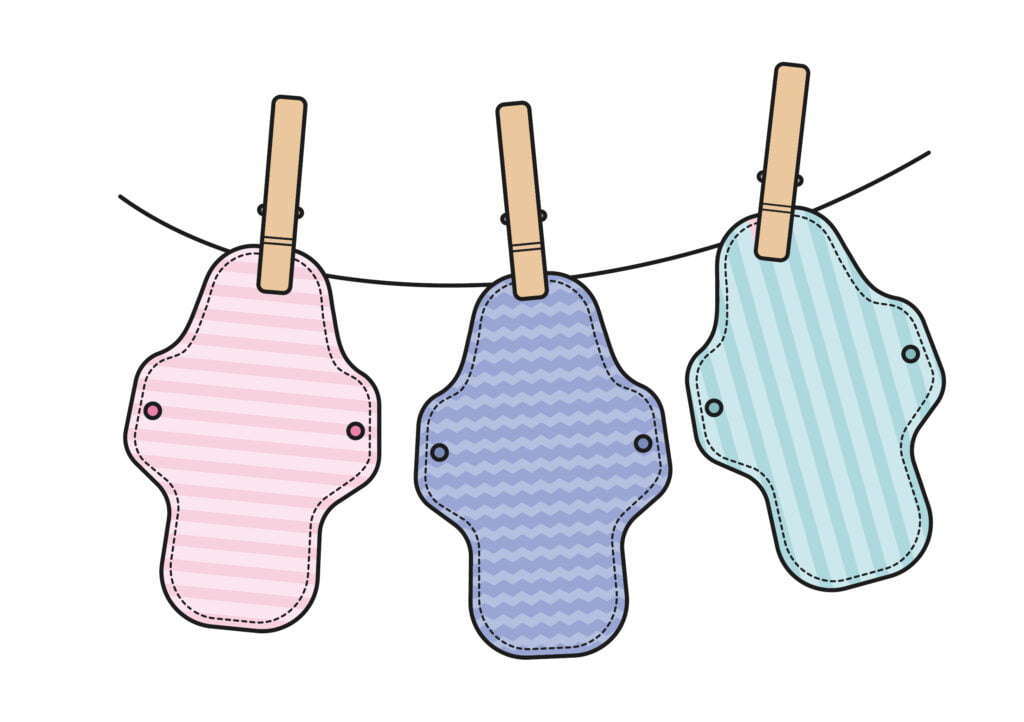Menstrual Education and Product Distribution

Our approach
Women and Girls do not have consistent access to MHM product range or choice to preferred, high-quality MHM products. Most women and girls in Uganda use homemade alternatives, such as an old cloth, rags, papers, cow dung, and leaves in rural communities. In Uganda, the private sector as manufacturers of sanitary towels makes the product market indicate that premium commercial products are unaffordable or not consistently accessible for women and girls in low-income communities like slums and rural areas.
Vulnerable girls in schools have been receiving a range of menstrual hygiene products from IIEA such as reusable pads, flow cups and disposable pads. Many of the women and girls prefer the reusable pads because it provides them a safety net of 2-4 years while with the introduction of flow cups for secondary school girls, it is a perfect way to manage their periods. The strategy will scale up a campaign to increase uptake and distribution of reusable pads for primary and secondary school girls and to engage in hygiene initiatives.
MHE Sessions
Distriubution of Re-usable products
Distribution of Scholastic Materials
Community and School Leadership Meetings

Distribution of Re-usable Pads
Women and Girls do not have consistent access to MHM product range or choice to preferred, high-quality MHM products. Most women and girls in Uganda use homemade alternatives, such as an old cloth, rags, papers, cow dung, and leaves in rural communities. In Uganda, the private sector as manufacturers of sanitary towels make the product market indicate that premium commercial products are unaffordable or not consistently accessible for women and girls in low-income communities like slums and rural areas.
With support from Irise International, Irise Institute East Africa (IIEA) distributed washable pads to primary school going girls. So far, nine schools benefited from this initiative, among the girls that benefited, some had a disability (deaf individuals, individuals with intellectual impairment, visual impairments, and/or physical impairments amongst others) and others were most vulnerable (girls whose guardians/parents cannot afford providing pads every month due to financial difficulties).
The schools included: St. Ursula special needs schools, Kyomya and Mafubira, Namaganaga, Nkondo, Butangala and Buyengo, Bubugo, Iwololo. The pad distribution was aimed at empowering a girl to menstruate with dignity but also keep her in school to achieve their potential unlimited by periods.
Distribution of Flow Cups
IIEA with support from The Cova Project, an Australian-based charity that believes in access to safe menstrual solutions for all women and girls. Through this initiative, we have been able to support the most vulnerable girls/women with flow cups and accurate information on menstrual health so that they can better manage their period in Jinja, Isingiro, Soroti, and Kumi districts in Uganda. So far, Flow cups have been distributed as follows; Jinja district through IIEA distributes flow cups, among these 26 were given to mothers from Wanyange lake community, a slum within the country. The partner Anne Adeke foundation and Hands of Hope Uganda reached and distributed 150 flow cups, 75 each in Soroti district, We Empower Her reached 403 in Isingiro district while Ask8 Foundation in Kumi district reaching 150 girls.


